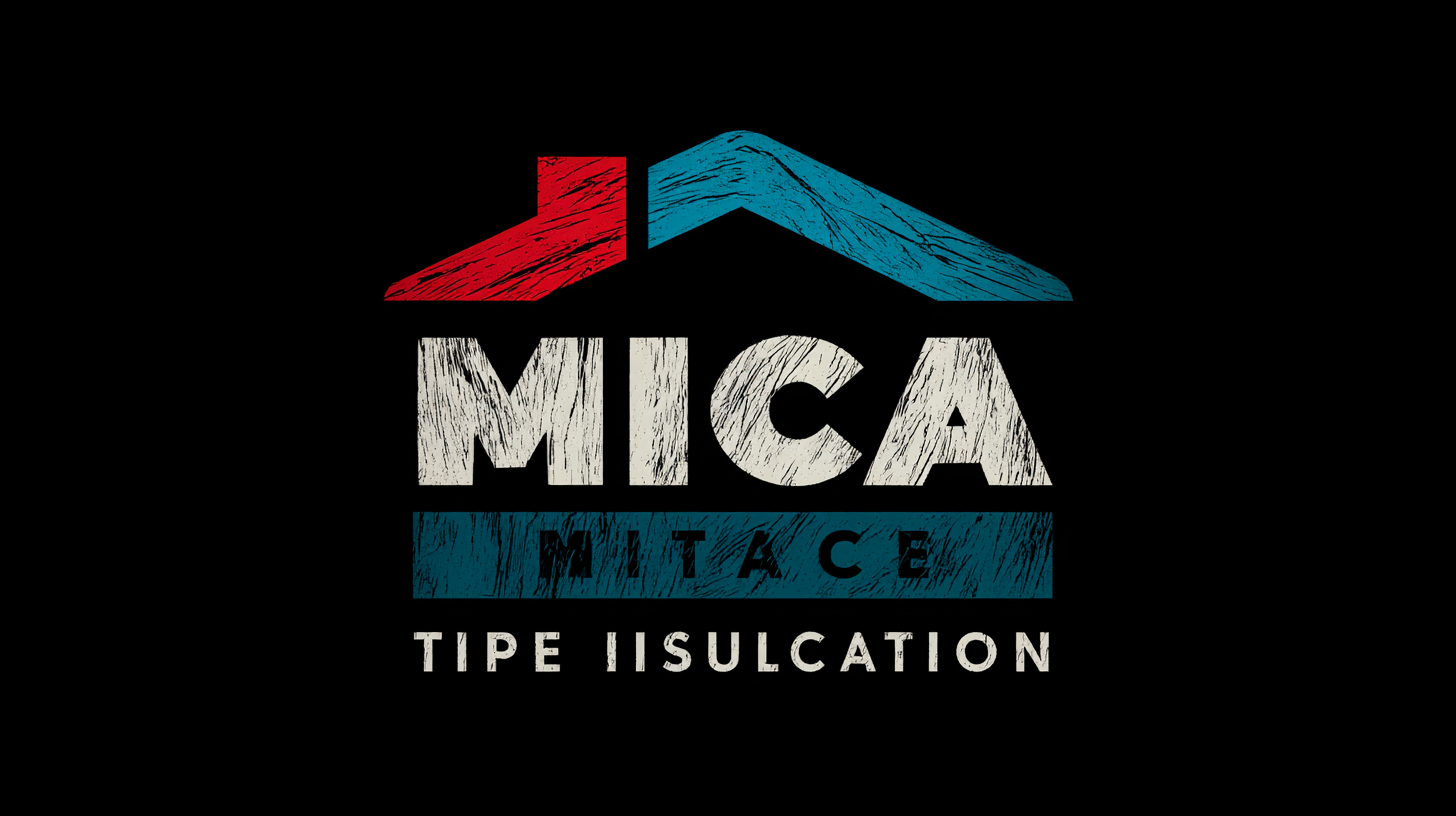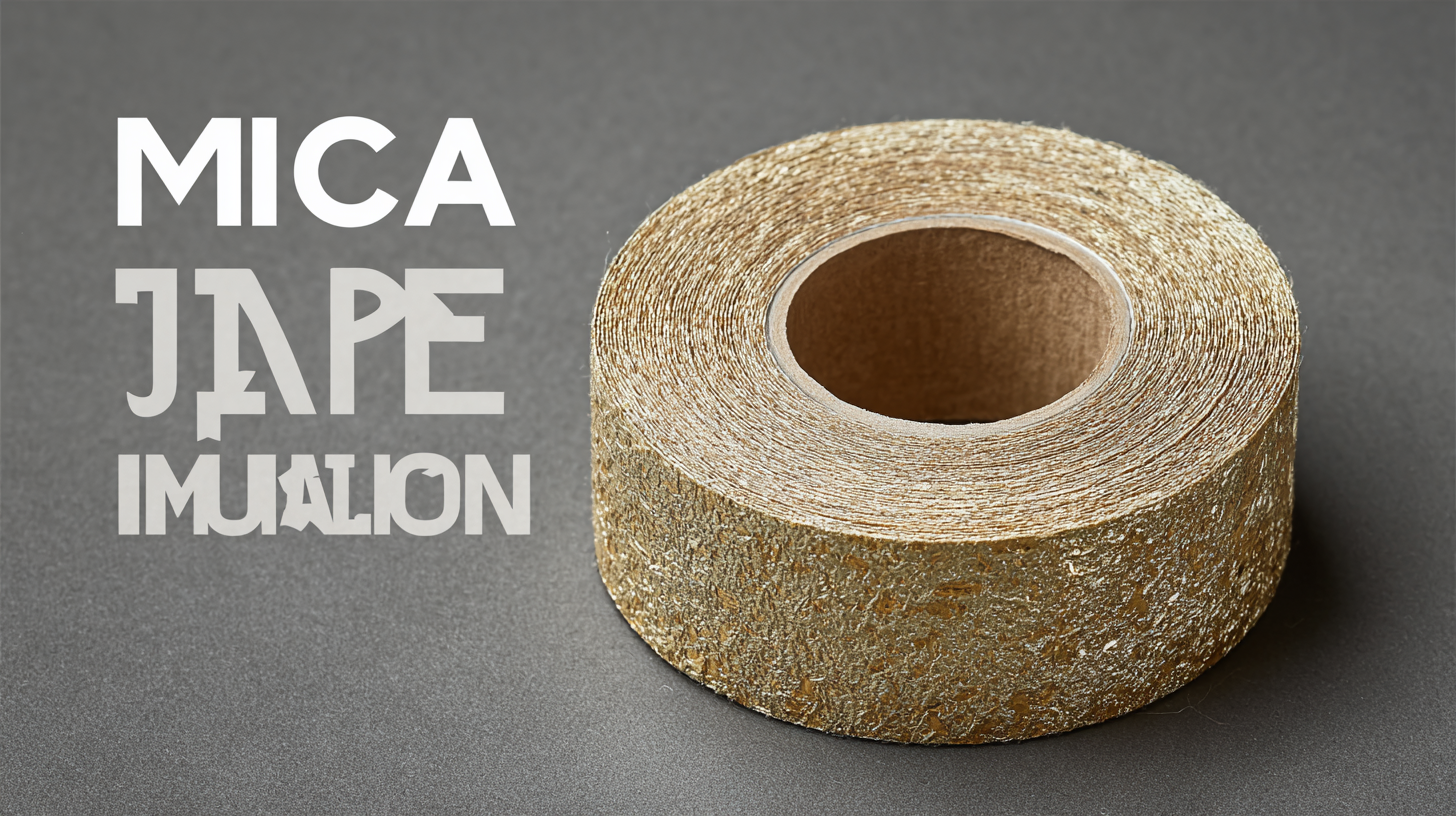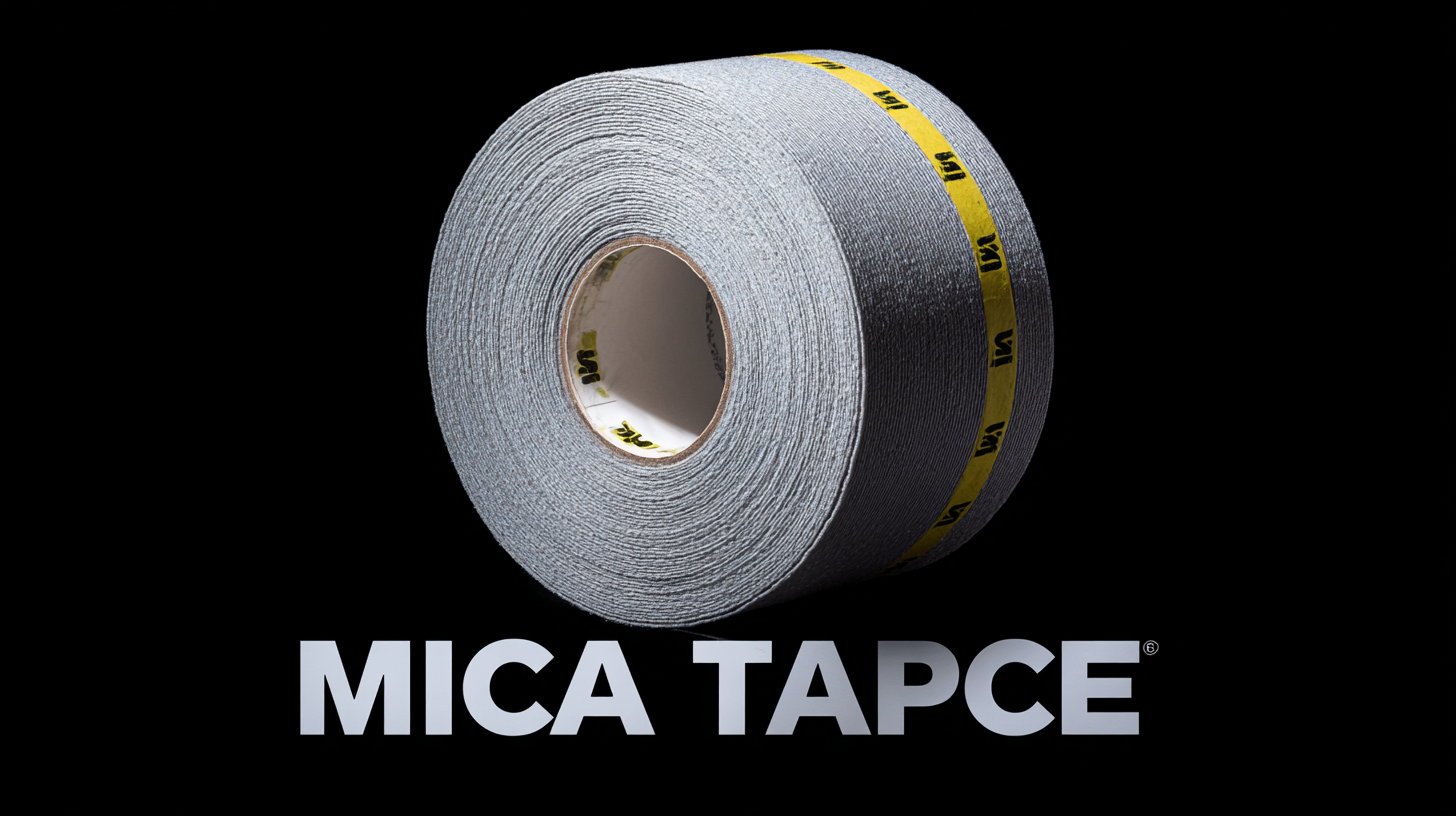QR Code
About Us
Products
Contact Us

Phone

Fax
0086-574-87527773

E-mail

Address
No 432 Zhenhai Middle Road, Luotuo Street, Zhenhai District, Ningbo City, Zhejiang China
In an era where efficiency and safety are paramount, the significance of high-quality insulation materials cannot be overstated. Among the various options available, Mica Tape Insulation stands out as a superior choice for industrial applications. This remarkable material, known for its outstanding thermal resistance and electrical insulating properties, plays a crucial role in enhancing the performance and longevity of electrical equipment. As industries worldwide increasingly prioritize safety and reliability, understanding the best examples of Mica Tape Insulation becomes essential for manufacturers and engineers alike. This blog will delve into the exemplary uses of Mica Tape Insulation that not only maximize operational efficiency but also uphold the highest safety standards. With a focus on the trusted quality that Chinese manufacturers bring to the global market, we aim to educate readers on how to select and implement Mica Tape Insulation effectively, ensuring optimal results in their applications.

Mica tape insulation products stand out due to their exceptional thermal and electrical performance characteristics. According to a report by the International Electrotechnical Commission, high-quality mica insulation can withstand temperatures exceeding 1000°C, making it ideal for use in high-energy environments such as electrical motors and transformers. Furthermore, these materials exhibit excellent dielectric strength, with values typically around 20-25 kV/mm, which is crucial for preventing electrical breakdowns in demanding applications.
Another significant aspect is the chemical and mechanical durability of mica tapes. According to a study published in the Journal of Materials Engineering, mica tape insulation can maintain its integrity in harsh chemical environments, offering resistance against solvents and acids. This durability contributes to the longevity of electrical components, reducing maintenance costs and ensuring consistent operational efficiency. As industries increasingly seek solutions that combine performance with safety, mica tape is becoming a go-to material for engineers looking to enhance both reliability and efficiency in their electrical systems.
When selecting mica tape insulation for applications that demand both efficiency and safety, there are several key features to consider. Firstly, the thermal resistance of mica tape is paramount. High-quality mica tape can withstand extreme temperatures, which is essential in environments where electrical equipment generates heat. Look for tapes with superior thermal stability to ensure reliable insulation under high-performance conditions, providing peace of mind and longevity to your equipment.

Another essential feature is the electrical insulation properties. Mica tape should have high dielectric strength, which prevents electrical breakdown and ensures safety in high-voltage applications. This is particularly important in industries such as electrical engineering and manufacturing, where maintaining optimal operational safety is crucial. Additionally, flexibility and ease of application are significant attributes. A tape that conforms easily to uneven surfaces will streamline installation and help maintain a secure fit, further enhancing the effectiveness of the insulation. By focusing on these features, users can select the right mica tape insulation that maximizes both efficiency and safety in their applications.
When it comes to enhancing safety in high-temperature environments, proper installation of mica tape insulation is crucial. This step-by-step guide outlines the process to ensure that you achieve the best results while maximizing efficiency. Begin by gathering your materials: high-quality mica tape, an appropriate adhesive, scissors, and safety gear. Before installation, it's essential to clean the surface thoroughly to remove any grease, dust, or old insulation. This preparation will help achieve a better bond and enhance the insulation's effectiveness.
Next, cut the mica tape to the desired length, allowing for some overlap to ensure complete coverage. When applying the tape, start from one end and gradually wrap it around the target surface, applying pressure to eliminate air pockets. Pay particular attention to corners and edges, as these areas are prone to wear and tear. Once securely in place, seal the ends with the adhesive to prevent any peeling or unraveling. Finally, inspect the entire installation for any gaps or weaknesses, making adjustments as needed. Following these steps will not only improve the insulation's performance but also significantly increase safety in your workspace.
When comparing mica tape to other insulation materials, it's essential to highlight its unparalleled advantages, particularly in applications requiring high-temperature resistance and electrical insulation. Mica tape's unique composition allows it to withstand extreme temperatures while maintaining excellent dielectric properties, making it a prime choice in industries such as aerospace and electrical engineering. Unlike traditional insulation materials like PVC or rubber, mica exhibits superior fire-resistant characteristics, which are crucial in environments where safety and performance are paramount.

Moreover, the mica insulation tape market is on an upward trajectory, projected to reach a valuation of USD 350 million by 2031. This growth is largely attributed to the increasing demand for high-performance cabling in modern infrastructure projects. In contrast to alternatives, mica tape not only enhances the safety of electrical installations but also contributes to efficiency by minimizing downtime caused by insulation failures. As the industry continues to innovate, the comparative advantages of mica tape become increasingly evident, solidifying its role as a vital component in the development of advanced insulation solutions.
When it comes to mica tape insulation, maintenance, and longevity are crucial for ensuring both efficiency and safety in electrical applications. Regular inspections should be performed to identify any signs of wear or degradation. This proactive approach helps mitigate potential issues before they escalate, ensuring the insulation remains effective. It's essential to monitor environmental factors such as temperature and humidity, which can impact mica tape performance. Keeping the insulation clean and free from contaminants contributes significantly to its lifespan.
Moreover, adherence to standards such as the IEEE Std. 43-2000 for insulation resistance testing is vital. This standard emphasizes the importance of evaluating insulation performance, particularly in rotating machines where technological advancements continuously influence insulation types. By undertaking periodic polarization index tests, operators can gauge the health of mica tape insulation, allowing for timely maintenance and replacement. Implementing these best practices not only maximizes the efficiency of the insulation but also enhances safety, offering peace of mind in operations where electrical reliability is paramount.
| Insulation Type | Temperature Rating (°C) | Electrical Strength (KV/mm) | Thickness (mm) | Application | Maintenance Tips |
|---|---|---|---|---|---|
| Mica Paper Insulation | 100 | 40 | 0.25 | Motor Windings | Regular Inspections |
| Mica Tape Insulation | 150 | 60 | 0.5 | Transformer Insulation | Clean Often |
| Mica Laminates | 180 | 50 | 1.0 | High Voltage Equipment | Check for Damage |
| Mica Insulation Sheets | 120 | 30 | 0.8 | Industrial Applications | Avoid Moisture |


0086-574-87527773


No 432 Zhenhai Middle Road, Luotuo Street, Zhenhai District, Ningbo City, Zhejiang China
Copyright © 2015-2024 Ningbo Nafty Sealing Materials Co., Ltd. All Rights Reserved.
| | | XML | Privacy Policy |
TradeManager
Skype
VKontakte
